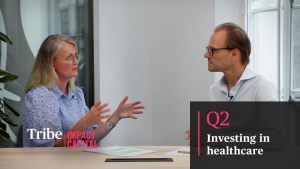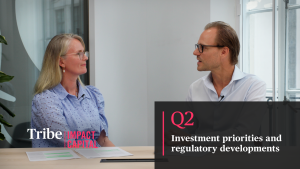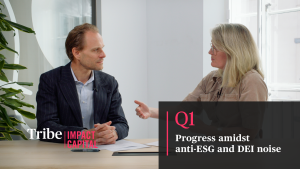CIO conversations - Q4 2023

Catch up with our CIOs, Amy Clarke and Fred Kooij, as they discuss the latest developments in investment and impact in their quarterly update.
In Q4 2023, markets experienced volatility, with stocks and bonds initially falling in October due to high US interest rates and economic strength. However, easing inflation and central banks holding rates steady drove a recovery in November and December, benefiting small and mid-cap stocks and lowering bond yields.
On the regulatory front, Europe and the UK made strides in sustainability and AI policy, with the EU finalising its AI Act and the UK’s Financial Conduct Authority (FCA) introducing new sustainability labelling to combat greenwashing. The US issued an AI executive order, while the UK hosted its first AI Safety Summit, reflecting a growing focus on responsible AI development.
December’s COP28 in Dubai saw global leaders commit to “transition away from fossil fuels” and triple renewable energy by 2030. However, some concerns remained about the lack of a firm fossil fuel phase-out commitment, which may impact future climate progress.





